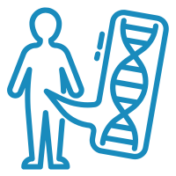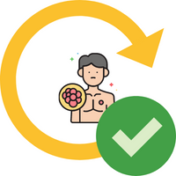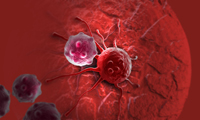Thank you to all our viewers who attended our webcast last week on VarSeq 2.5.0: VSClinical AMP Workflow from the User Perspective. If you did not get a chance to attend but would still like to see the new upgrades to VarSeq 2.5.0, please visit our website here. Overall, this webcast highlighted the versatility of VarSeq, demonstrating both a Tumor-Normal… Read more »
While the analysis of gene fusions is crucial for understanding the genetic basis of cancer, the process of interpreting these mutations can be challenging. One important component of fusion interpretation is the identification of relevant publications. To aid researchers in the search for publications related to specific gene fusions, Felix Mitelman, and colleagues have created the Mitelman Database of Chromosome… Read more »
Explore the importance of negative findings in genomic medicine through the lens of VarSeq’s VSClinical AMP. When analyzing a somatic sample in VarSeq, users have the option to report on several types of biomarkers with VSClinical AMP. In addition to your usual mutational biomarkers such as small variants, your copy number variants, and structural variants, we support the analysis of… Read more »
Discover the power of VSClinical’s Interpretation Match Behavior options for managing the scope of somatic variants in cancer reporting, enabling clinical teams to make informed treatment decisions. Multiple interpretations can apply to a single biomarker or tumor type. In some circumstances, a clinical team may only want to report the most relevant and significant biomarker, treatment, diagnosis, or prognosis interpretations… Read more »
Thank you to those who attended our webcast on the user perspective of our automated AMP guidelines! Furthermore, let me express our appreciation for those particularly engaged users who posed some very thoughtful questions. While we weren’t able to answer all of them live, I hope to shed some light on some pertinent details of somatic analysis here. Let’s start… Read more »
Recently we have released blog posts discussing updates to annotations in VarSeq such as ClinVar and COSMIC. Keeping with that trend, in this blog post, I will discuss the most recent updates to the Golden Helix CancerKB database. For those how may be unfamiliar with the Golden Helix CancerKB source, it is a professional curated set of interpretations for the… Read more »
This morning I released a new version of my eBook “Clinical Variant Analysis for Cancer – Second Edition.” The clinical utilization of Next-Generation Sequencing data to diagnose cancer has taken off, resulting in the need to standardize the interpretation and reporting of observed genomic variations. This eBook explores the entire clinical diagnostic process. It demonstrates how Golden Helix software can support clinicians with their… Read more »
In 1914, the German cytologist Theodor Boveri coined the phrase “Cancer is a disease of the genome”. At this time, his ideas were as equally revolutionary as they were highly contested. Fast forward. More than a hundred years later, Next-Generation Sequencing effectively permits a highly sensitive analysis of cancer cells. It can help us to understand mutations associated with cancer… Read more »
I spent a very eventful week at the Molecular TriCon in downtown San Francisco, and have been pondering the very clear trends that emerged by attending the clinical and NGS focused talks. Cancer gene panels make sense economically and as “massively parallel” tests to inform therapy, but they are bound to get more complex. Liquid biopsies of circulating tumor DNA… Read more »
In 1914 the German cytologist Theodor Boveri coined the phrase “Cancer is a disease of the genome”. At this time his ideas were equally revolutionary as they were highly contested. Fast forward. More than hundred years later, Next-Generation Sequencing effectively permits a highly sensitive analysis of cancer cells. It can help us to understand mutations associated with cancer development and… Read more »






